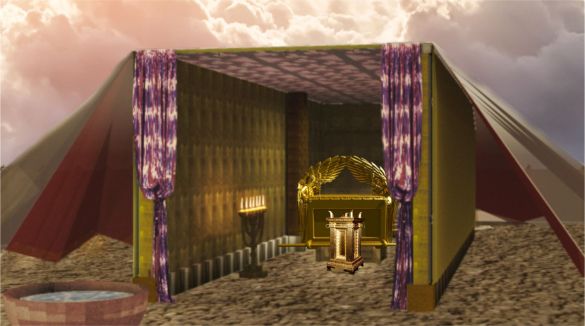A lot of Charismatics and NAR/INC groups promote the idea of 24/7 prayer and worship. They say there was 24/7 praise and worship before the Ark of the Covenant during the time of the Tabernacle of David. For example see here: https://billyhumphrey.com/billysblog/247-prayer-in-the-spirit-of-the-tabernacle-of-david. It says: "David set the Ark in a tent and commanded Asaph, the song leader, along with specifically trained singers and musicians, to worship the Lord before the Ark night and day (1 Chron 16:37)."
But 1 Chronicles 16:37-40 says: "So he left there before the ark of the covenant of the LORD Asaph and his brethren, to minister before the ark continually, as every day's work required: And Obededom with their brethren, threescore and eight; Obededom also the son of Jeduthun and Hosah to be porters: And Zadok the priest, and his brethren the priests, before the tabernacle of the LORD in the high place that was at Gibeon, To offer burnt offerings unto the LORD upon the altar of the burnt offering continually morning and evening, and to do according to all that is written in the law of the LORD, which he commanded Israel;" (KJV)
Every translation says "continually" or "regularly," not day and night. And v. 40 says "morning and evening." Humphrey seems to be taking a lot of liberty with the phrase "morning and evening." To me this just means in the morning and in the evening; Humphrey twists it into "day and night" which carries the meaning he wants it to carry.
Why is this significant? Mainly because Charismatics like to push this idea and they say that in the last days God will restore the "correct worship" as it was during the time of the Tabernacle of David. This will be a sign of the Lord's imminent return. The scripture they use as justification is Acts 15:16: "After this I will return and will rebuild the tabernacle of David, which has fallen down; I will rebuild its ruins, And I will set it up;" James quotes this verse at the council in Jerusalem. The context is whether or not the Gentiles are included or if they first have to convert to Judaism before they can be Christians and has nothing to do with "proper worship."
I'd like to discuss what the Tabernacle of David was all about and whether there was 24/7 praise and worship before the Ark during this time.
But 1 Chronicles 16:37-40 says: "So he left there before the ark of the covenant of the LORD Asaph and his brethren, to minister before the ark continually, as every day's work required: And Obededom with their brethren, threescore and eight; Obededom also the son of Jeduthun and Hosah to be porters: And Zadok the priest, and his brethren the priests, before the tabernacle of the LORD in the high place that was at Gibeon, To offer burnt offerings unto the LORD upon the altar of the burnt offering continually morning and evening, and to do according to all that is written in the law of the LORD, which he commanded Israel;" (KJV)
Every translation says "continually" or "regularly," not day and night. And v. 40 says "morning and evening." Humphrey seems to be taking a lot of liberty with the phrase "morning and evening." To me this just means in the morning and in the evening; Humphrey twists it into "day and night" which carries the meaning he wants it to carry.
Why is this significant? Mainly because Charismatics like to push this idea and they say that in the last days God will restore the "correct worship" as it was during the time of the Tabernacle of David. This will be a sign of the Lord's imminent return. The scripture they use as justification is Acts 15:16: "After this I will return and will rebuild the tabernacle of David, which has fallen down; I will rebuild its ruins, And I will set it up;" James quotes this verse at the council in Jerusalem. The context is whether or not the Gentiles are included or if they first have to convert to Judaism before they can be Christians and has nothing to do with "proper worship."
I'd like to discuss what the Tabernacle of David was all about and whether there was 24/7 praise and worship before the Ark during this time.

